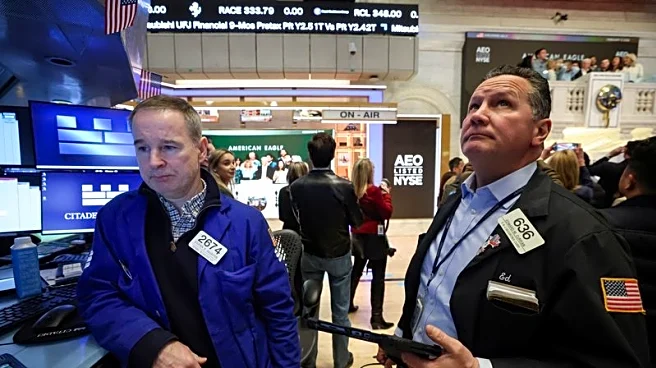Rapid Read • 8 min read
The Voting Rights Act, signed into law on August 6, 1965, by President Lyndon B. Johnson, marks its sixtieth anniversary. This landmark legislation was designed to eliminate racial discrimination in voting, significantly increasing the number of Black voters and leading to the election of numerous Black leaders. However, civil rights lawyers and scholars are raising alarms about the current state of voting rights in the United States. They argue that recent legislative efforts have stalled in Congress, often along party lines, with Republicans citing the need to protect against voter fraud and ensure election integrity. Voting rights advocates, on the other hand, contend that these measures undermine the promises of the Voting Rights Act and pose a threat to the American democratic system.
AD
The ongoing debate over voting rights legislation is crucial as it impacts the fundamental democratic process in the United States. The Voting Rights Act has historically played a significant role in empowering minority communities, particularly Black and Hispanic voters. The current legislative impasse and proposed changes, such as those in Texas, could potentially suppress these communities' voting power, altering political representation and policy outcomes. The issue is further complicated by partisan divisions, with Republicans and Democrats often at odds over the balance between election security and voter accessibility. The outcome of this debate will have lasting implications for civil rights and the integrity of the electoral process.
The battle over voting rights is expected to continue, with potential legal challenges and political maneuvers from both sides. In Texas, Democrats have taken drastic steps by fleeing the state to prevent a vote on a proposed Congressional map, which they argue would suppress minority voters. Texas Governor Greg Abbott has responded by suing to remove the House Democratic leader, indicating a prolonged legal and political struggle. Nationally, the issue may influence upcoming elections and legislative agendas, as both parties seek to solidify their positions on voting rights and election integrity.
The debate over voting rights also touches on broader ethical and cultural dimensions, including the historical struggle for civil rights and the ongoing quest for equality in the United States. The Voting Rights Act's legacy is a testament to the progress made in combating racial discrimination, yet the current challenges highlight the fragility of these gains. The discourse around voting rights reflects deeper societal tensions regarding race, representation, and the balance between security and accessibility in democratic processes.
AD
More Stories You Might Enjoy













